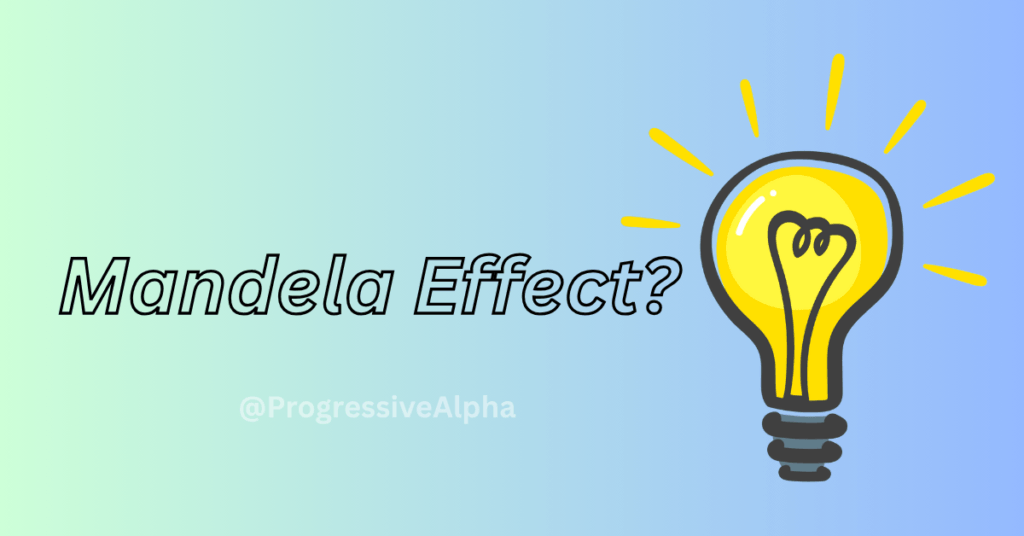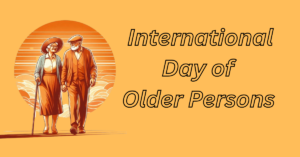
Have you ever been 100% sure you remember something a certain way; only to find out it never happened like that? Yeah, that weird brain-glitch moment? That’s what the Mandela Effect is all about.
It’s this super strange thing where lots of people share the same false memory, even though it’s totally different from what actually happened. From famous movie lines we’ve been quoting wrong for years to brand names we’ve been misreading our whole lives, the Mandela Effect makes you question everything you thought you knew!
Where the Name Came From
The name? It comes from Nelson Mandela because tons of people remember him dying in prison back in the 1980s… except he didn’t. He actually passed away in 2013. Wild, right?
What to Expect in This Blog
In this blog, we’re diving into what the Mandela Effect really is, why our brains do this, and some of the most mind-blowing examples that will seriously mess with your memory. Let’s get into it!
What is the Mandela Effect?
The Mandela Effect refers to a situation where a large group of people remember an event, fact, or detail incorrectly. The term was coined by Fiona Broome in 2009 after she discovered that she and several others falsely remembered Nelson Mandela dying in a South African prison during the 1980s. But here’s the twist; Mandela was alive until 2013! This mass misremembering led Broome to create a website to discuss this strange phenomenon.
So, why do these shared false memories happen? Let’s dive deeper and uncover some fascinating examples.
5 Mind-Blowing Examples of the Mandela Effect
- The Berenstain Bears vs. Berenstein Bears
One of the most famous examples of the Mandela Effect is the Berenstain Bears. For years, many people thought this popular children’s book series was called the Berenstein Bears. The confusion lies in the fact that “Berenstain” is the correct spelling, but people swear they saw it written with an “e” instead of an “a”. It’s one of those weird memories that just doesn’t line up with reality.
Why does this happen? Some experts believe it’s because we tend to remember words or names in a more common way (like “stein” instead of “stain”), and our brains fill in the gaps with what seems right. Cool, right?
- “Luke, I Am Your Father” vs. “No, I Am Your Father”
If you’re a Star Wars fan, this one might throw you for a loop. Many fans of the franchise remember the famous line from Darth Vader as “Luke, I am your father”. However, the real line is actually “No, I am your father”. People have been quoting this wrong for decades!
This isn’t just a random mistake; it’s a shared memory across millions of people. It shows how easily misremembering small details can create a whole new collective reality that just doesn’t exist.
- The Monopoly Man and His Monocle
You know the Monopoly board game mascot, Rich Uncle Pennybags? Most people remember him wearing a monocle, but guess what? He’s never had one! This memory is often mixed up with Mr. Peanut, the mascot of Planters peanuts, who wears a monocle. Both characters are older, distinguished-looking figures, which is probably why the confusion happens.
The Mandela Effect is all about these small visual details that people remember wrong but are certain of. But despite popular belief, Mr. Monopoly does not wear a monocle.
- Mirror, Mirror on the Wall
If you grew up watching Disney’s Snow White and the Seven Dwarfs, you probably remember the famous line, “Mirror, mirror on the wall, who’s the fairest of them all?”. But here’s the kicker: the actual line is “Magic mirror on the wall”. Yep, no “mirror, mirror.”
This small detail has been misquoted for decades, and it’s a perfect example of how something as simple as a word swap can lead to a whole new memory for millions of people. Could it be that the Disney movies shaped our childhood memories, leading us to incorrectly recall iconic quotes?
- Oscar Mayer or Oscar Meyer?
This is a quirky one. How many times have you seen the brand name Oscar Mayer for hot dogs and thought it was spelled Oscar Meyer? Turns out, the correct spelling is Oscar Mayer with an “A”, not an “E”.
It’s a small but noticeable difference, and many people firmly believe they’ve seen it spelled with an “E”. Maybe it’s because the pronunciation of “Mayer” sounds like “Meyer” to many, causing the memory confusion.
Why Do These False Memories Happen?
The Mandela Effect isn’t just some quirky coincidence; there are reasons behind these shared false memories.
False Memories: Our memories are not perfect. When we try to remember something, our brains can mix up details or fill in gaps, creating an inaccurate recollection.
Confabulation: Sometimes, our brain fills in missing details with things we think we remember, even if they never happened. It’s not intentional lying, but more like a way for our minds to make sense of things.
Priming: Our memories are influenced by what we’ve seen or heard recently. For example, if someone tells you a detail wrong, you might start remembering it that way too, which is why rumors and urban legends can spread so quickly.
Group Influence: The internet plays a huge role in spreading these false memories. Once a memory is shared among a group or online community, it spreads quickly, and more people start remembering things the same way.
Conclusion: The Mystery Behind the Mandela Effect
The Mandela Effect is a fascinating reminder that our memories are not as reliable as we think. Whether it’s misremembering a movie quote or a product name, these collective false memories raise interesting questions about the nature of human memory.
While some people believe these discrepancies are due to alternate realities or timelines, others attribute them to how our brains process and recall information. What do you think? Have you ever experienced the Mandela Effect yourself?
Drop your thoughts in the comments, and let’s talk about the strange phenomenon that continues to intrigue us all!



